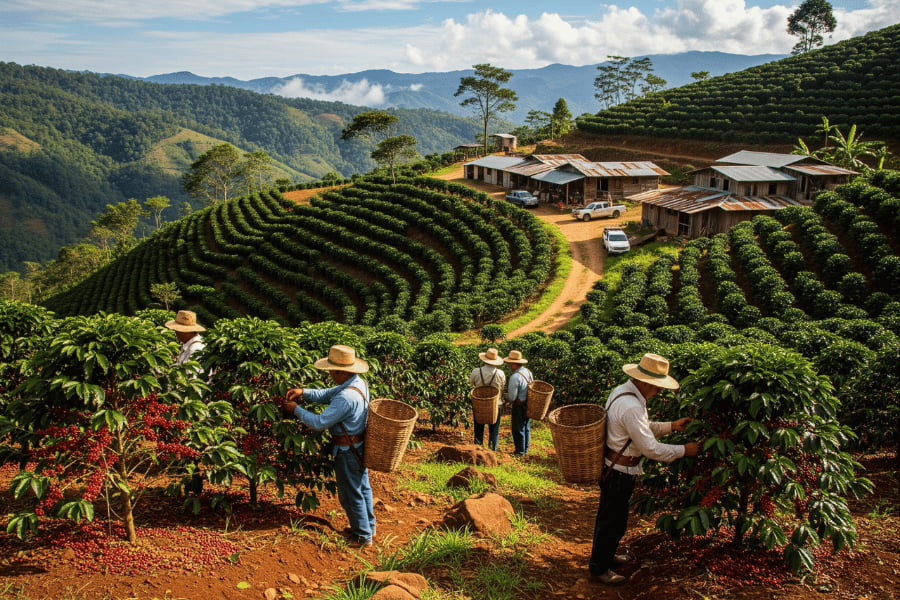THE WESTERN REGION
The Western Region of Honduras forms the country’s premier coffee-growing heartland, encompassing the highland departments of Copán, Ocotepeque, Lempira, Intibucá, and Santa Bárbara. This mountainous zone—part of the vast Central American coffee corridor—features altitudes ranging from 1,000 to over 1,800 meters above sea level, rich volcanic soils, and a temperate climate with marked wet and dry seasons, all of which create ideal conditions for cultivating high-quality Arabica coffee. The region’s rugged topography and microclimates contribute to an exceptional diversity of cup profiles, making Western Honduras the backbone of the nation’s specialty coffee production.
Coffees from this region are prized for their bright acidity, medium to full body, and complex flavour balance that often combines fruity, floral, and chocolaty notes. The combination of altitude and careful post-harvest processing produces beans with both clarity and sweetness—characteristics that have earned Honduran coffees growing international acclaim.
Among these highland zones, Copán stands out as one of Honduras’s most famous and consistent producing areas. Located near the Guatemalan border, it shares similar terroir to Guatemala’s Antigua region, with fertile volcanic soils and cool mountain air that promote slow cherry maturation. Copán coffees are celebrated for their well-balanced profile, mild acidity, and sweet, full-bodied character, often revealing flavours of caramel, nuts, and milk chocolate with a smooth, lingering finish. These qualities have made Copán a staple origin in specialty blends and single-origin offerings worldwide
Further east, the Opalaca region—straddling Lempira and Intibucá—has gained attention for its vibrant, aromatic coffees with bright fruit notes, balanced sweetness, and clean cup profiles. Many farms here practice shade-grown and sustainable cultivation systems, integrating coffee trees with native forest vegetation to preserve biodiversity and soil fertility. These environmentally conscious methods not only improve coffee quality but also contribute to long-term ecosystem resilience and farmer livelihoods.
In recent years, the Western Region has become a hub of innovation and excellence within Honduras’s coffee industry. Farmer cooperatives and specialty exporters have invested heavily in quality control, traceability, and micro lot development, allowing producers to capture higher prices and global recognition. As a result, the region continues to define Honduras’s reputation as a producer of high-altitude, flavourful, and ethically grown specialty coffees that rival the best in Central America.

